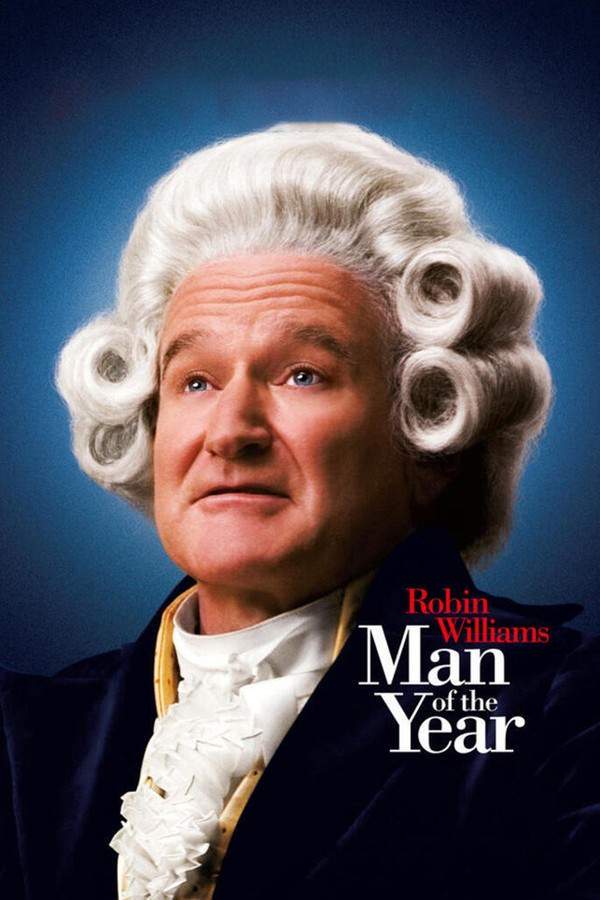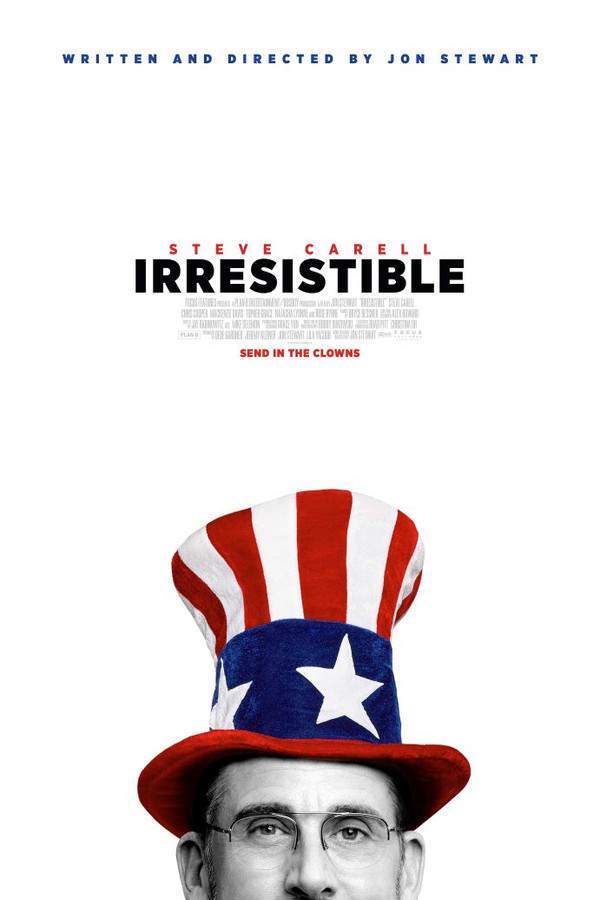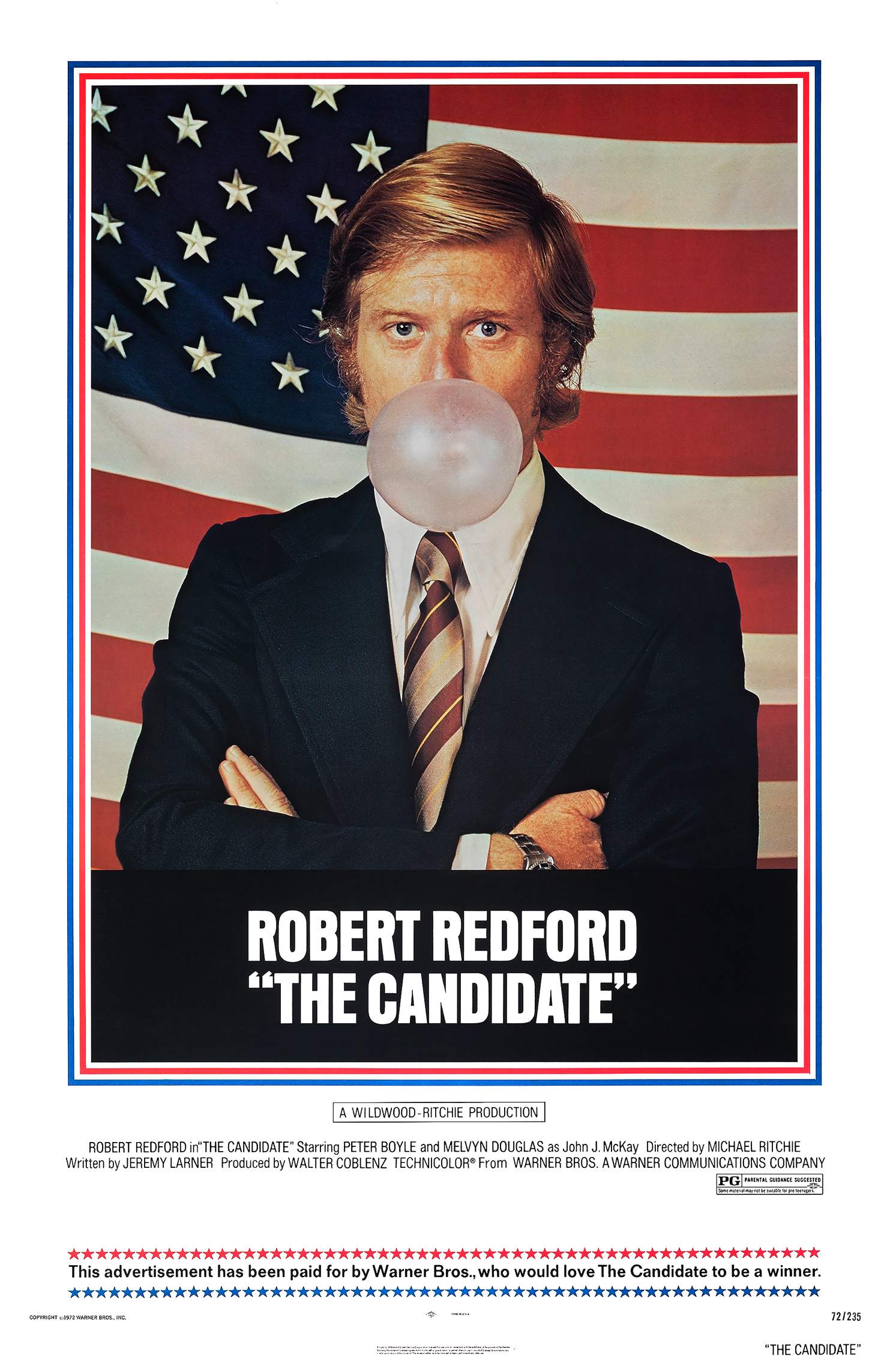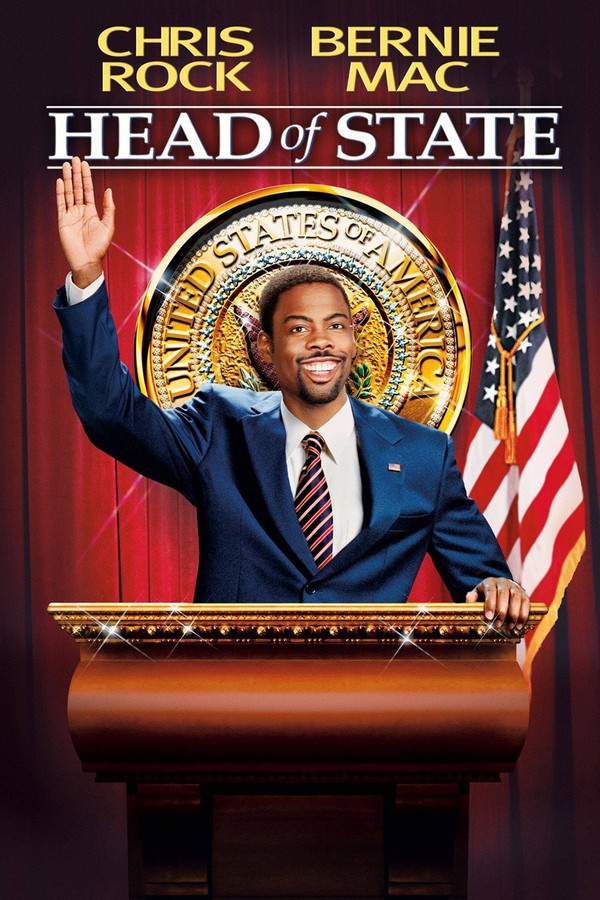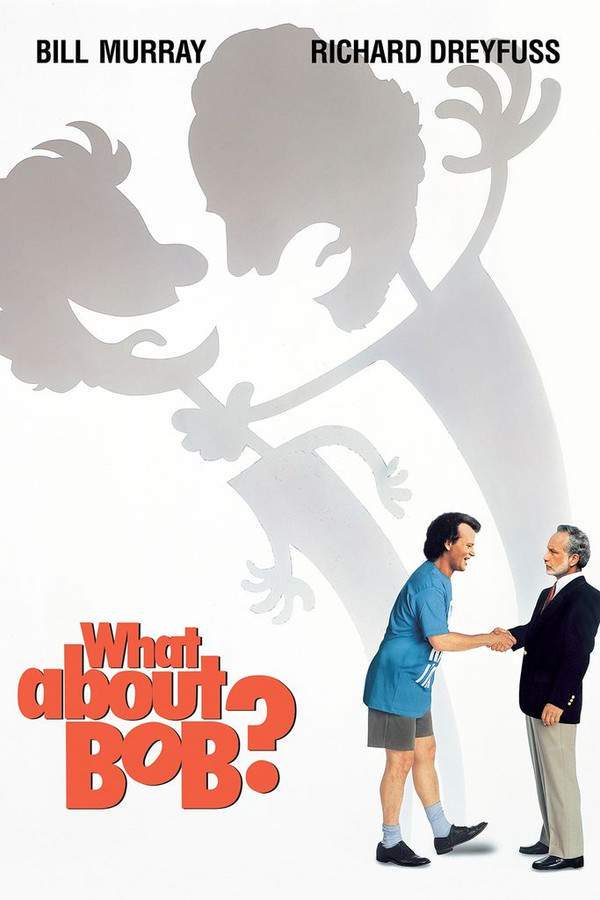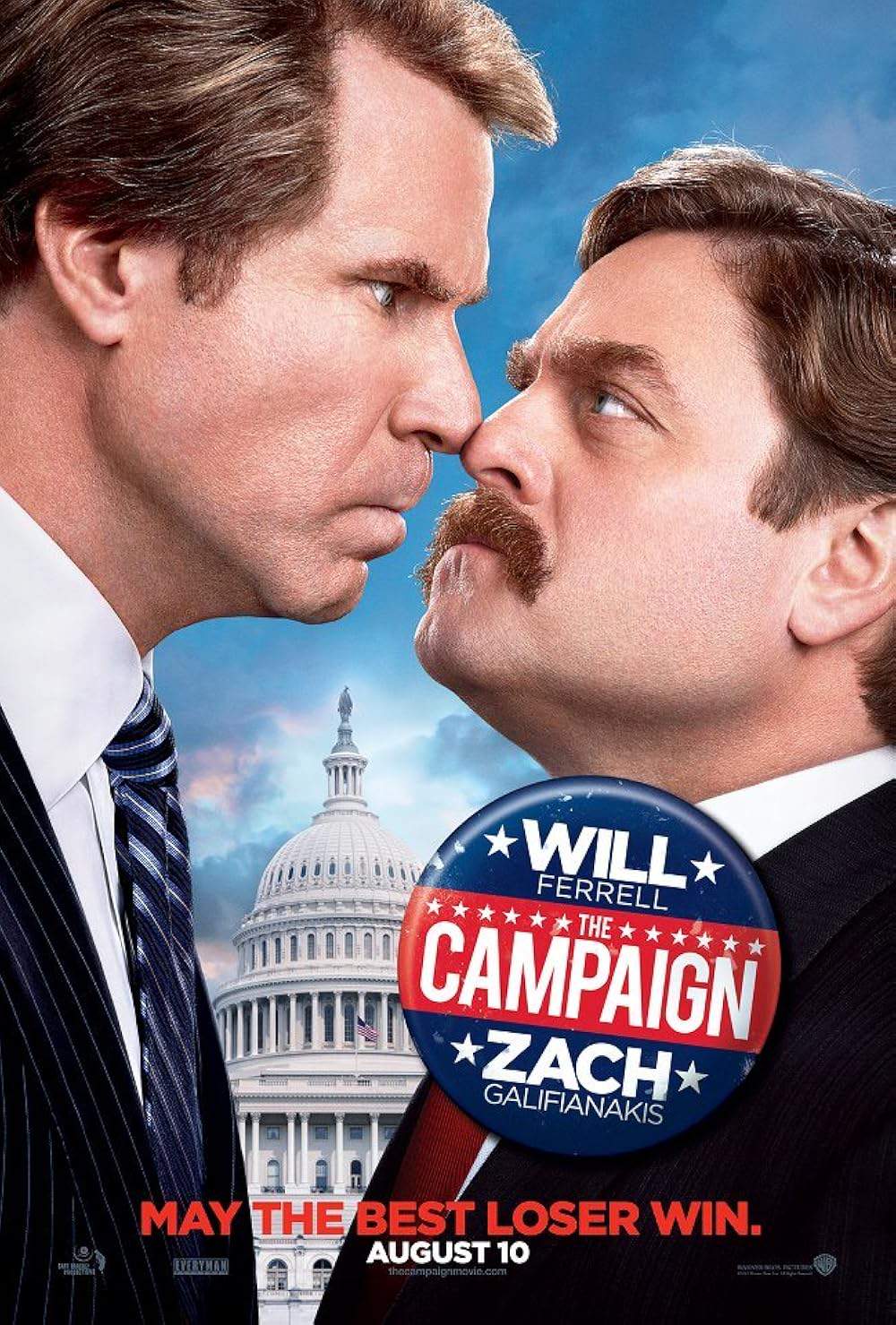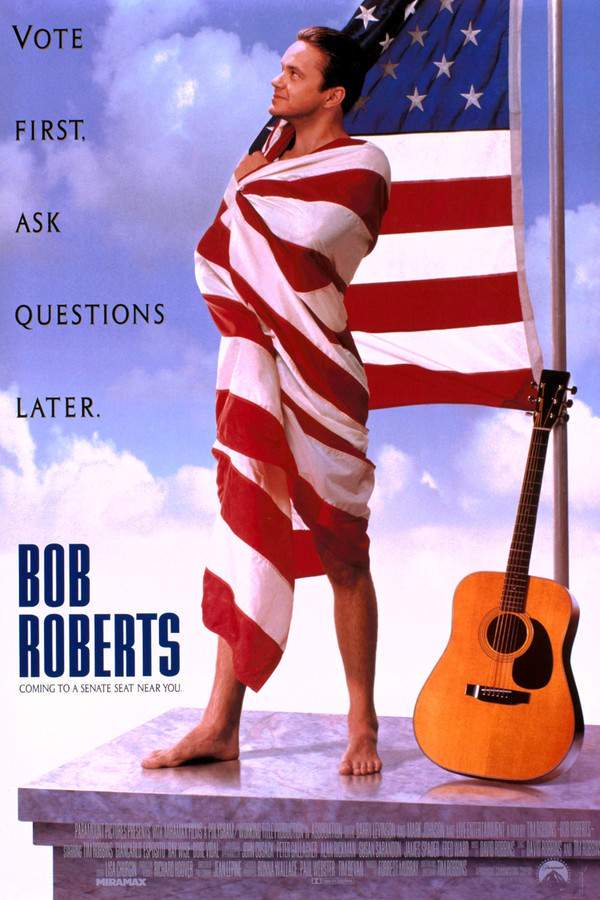
Bob Roberts 1992
Made by
Paramount Pictures
Test your knowledge of Bob Roberts with our quiz!
Bob Roberts Plot Summary
Read the complete plot summary and ending explained for Bob Roberts (1992). From turning points to emotional moments, uncover what really happened and why it matters.
In the scorching summer of 1990, Pennsylvania becomes the focal point of a heated senatorial battle between Brickley Paiste, the incumbent Democrat, and Bob Roberts, a conservative Republican who happens to be a folk singer. Through the lens of Terry Manchester, a British documentary filmmaker, viewers get an unsparing look at Roberts’ campaign as he energetically tours the state. The camera captures every detail, revealing his performances—songs and speeches that blend traditional values with a spirit of laissez-faire capitalism. This mix invokes a sense of nostalgia for the 1960s, even while starkly contrasting its foundational ideals.
As the campaign progresses, Manchester’s footage is enriched by candid commentary from figures like Kelly Noble, an anchor on television, and Bugs Raplin—an investigative journalist filled with convictions. Paiste holds firm in his belief that Roberts is a shrewd manipulator, potentially connected to factions like the National Security Council, the CIA, and the military-industrial complex. At the same time, Raplin sees a chance to topple Roberts by exposing his anti-drug charity, Broken Dove, as a veiled operation linked to a CIA drug trafficking scheme, further fueled by allegations against Lukas Hart III.
The narrative thickens as Paiste becomes embroiled in scandal; a young woman is seen leaving his vehicle. Although he claims she is merely a friend of his granddaughter, the whispers of controversy grow louder. The Roberts campaign, too, faces turbulence as Raplin’s claims gain momentum, leading to a subpoena for Hart III, suspected of misdirecting housing loans for illicit drug activities. Through Manchester’s documentary, we witness the harsh realities of American politics—a realm where ideals clash starkly with opportunistic behavior, and the fragile boundaries between truth and deceit are constantly crossed.
As election day approaches, the tension peaks when Roberts gets invited to perform on a famous sketch comedy show. In a surprising twist, he opts to replace his planned song with a piece that serves more as a covert campaign pitch, igniting fierce discussions among the show’s crew and resulting in a dramatic on-air interruption. Amidst the fracas, Roberts faces a shocking incident when an would-be assassin targets him, leaving him purportedly injured. Initial blame falls on Raplin, a nuisance to the campaign, but investigators soon realize his physical condition prevents him from being the shooter. Raplin asserts that no bullet ever struck Roberts, merely landing safely in the ground, leading to widespread skepticism among onlookers.
Despite the surrounding chaos, the failed assassination forges an unexpected bond of support for Roberts, propelling him to a substantial victory with 52% of the votes cast. His supporters dance in joy, celebrating what they perceive as a hard-fought win, unaware that his injuries may be greatly exaggerated. A fleeting glimpse of Roberts at his victory celebration shows him moving much more easily than one might expect of an injured candidate.
In a shocking moment, a young boy dashes to Manchester, exclaiming, “He’s dead! They got him!” The startling declaration sends ripples through the crowd. As Manchester delves deeper, he discovers that Raplin met his end at the hands of a right-wing extremist. This news, while tragic, sends waves of jubilation through Roberts’ ranks.
The film closes with a somber radio announcement revealing Raplin’s demise and a poignant shot of Manchester standing at the Jefferson Memorial, reflecting upon the inscription: “I have sworn upon the altar of God eternal hostility against every form of tyranny over the mind of man.” The haunting end emphasizes the dark currents that have shaped the unfolding drama, leaving viewers to ponder the morality and implications of the narrative.
Bob Roberts Timeline
Follow the complete movie timeline of Bob Roberts (1992) with every major event in chronological order. Great for understanding complex plots and story progression.
The Campaign Begins
In the scorching summer of 1990, the senatorial race intensifies in Pennsylvania. Incumbent Democrat Brickley Paiste faces off against conservative Republican Bob Roberts, who is also a folk singer embodying traditional values.
Documentary Filming
The British filmmaker Terry Manchester captures the whirlwind of Bob Roberts' campaign through his lens. Manchester's film showcases Roberts' vibrant performances, blending music and speeches that invoke nostalgia while promoting laissez-faire capitalism.
Candid Commentary
As the campaign progresses, Manchester's documentary benefits from insightful commentary from various figures. Television anchor Kelly Noble and journalist Bugs Raplin provide perspectives that highlight the controversial nature of Roberts' political maneuvers.
Scandal Unfolds
Brickley Paiste becomes embroiled in scandal when a young woman is seen exiting his vehicle. Though he claims she is just a friend, rumors swirl, adding tension to an already fraught political landscape.
Exposing Allegations
Investigative journalist Bugs Raplin sees an opportunity to undermine Bob Roberts by linking his anti-drug charity, Broken Dove, to CIA drug trafficking activities. This claim draws attention to the intertwined webs of political and illicit affairs.
Subpoena and Accusations
As the election urgency rises, a subpoena is issued for Lukas Hart III concerning dubious housing loans involving drug money. This development casts a shadow over Roberts’ campaign, intensifying the stakes as election day nears.
Contentious Performance
Roberts is invited to perform on a popular sketch comedy show, igniting tension when he changes his set to include a campaign pitch. This unexpected move sparks fierce debate among the crew, highlighting the blurred lines of entertainment and politics.
Assassination Attempt
In a shocking turn of events, an attempted assassination targets Bob Roberts during the live show, leading to chaos. Initial suspicion falls on Raplin, but investigations later determine he was physically unable to commit the act.
Skepticism Arises
After the assassination attempt, Raplin claims that no bullet struck Roberts, causing public skepticism about the veracity of the incident. These developments deepen the narrative's complexity, creating uncertainty among voters.
Election Victory
In a surprising culmination of the chaotic campaign, Bob Roberts wins the election with 52% of the votes. His supporters celebrate, blinded by the fervor of victory, despite growing doubts about the legitimacy of his injuries.
Tragic News
A young boy runs to Manchester, announcing that Raplin has been killed by a right-wing extremist. This revelation sends shockwaves through the crowd, highlighting the perilous intersection of politics and violence.
Celebration of Victory
While Raplin's death is a tragedy, it inadvertently fuels jubilation among Roberts' supporters. They celebrate their candidate's victory, illustrating the irony of political success amidst personal tragedy.
Somber Reflection
The film concludes with a somber radio announcement of Raplin's death. Manchester is seen at the Jefferson Memorial, contemplating the stark inscription about eternal hostility against tyranny, reflecting the morally ambiguous nature of political life.
End Credits
As the credits roll, viewers are left to ponder the implications of the narrative. The intertwining of personal and political tragedy, alongside the struggle for truth, lingers in the air, provoking thought about the ethics of advocacy.
Bob Roberts Characters
Explore all characters from Bob Roberts (1992). Get detailed profiles with their roles, arcs, and key relationships explained.
Bob Roberts (Tim Robbins)
Bob Roberts is a charismatic folk singer and conservative Republican running for the Senate, embodying the complexities of contemporary politics. He presents himself as a man of the people, yet his true motivations are often shrouded in ambiguity. Through his vibrant performances and calculated charm, Roberts seeks to manipulate public perception while masking his underlying opportunism.
Brickley Paiste (Harry Lennix)
Brickley Paiste is the incumbent Democrat facing off against Roberts, determined to uphold his ideals amidst a scandal-plagued campaign. He represents traditional political values and challenges Roberts' populist tactics. As the race intensifies, Paiste’s beliefs are tested, revealing the pressures and vulnerabilities of a career politician.
Terry Manchester (Brian Murray)
Terry Manchester is a British documentary filmmaker who provides a lens through which the audience experiences the campaign. His impartial yet probing approach sheds light on the nuances of political navigation and public manipulation. Through his camera, Manchester captures the dualities of the campaign, offering insightful commentary on American democracy.
Bugs Raplin (Giancarlo Esposito)
Bugs Raplin is an investigative journalist driven by a deep sense of justice, seeking to expose corruption surrounding Roberts' campaign. He embodies the tenacity needed to challenge powerful figures, showcasing the importance of accountability in politics. Raplin's journey reveals the dangerous intersections between truth-seeking and political agendas.
Kelly Noble (Rebecca Jenkins)
Kelly Noble is a television news anchor who provides commentary during the campaign, representing the media's role in shaping public opinion. Her insights reflect the complexities of reporting in politically charged environments. Noble's character adds depth to the commentary on how media can influence electoral outcomes.
Bob Roberts Settings
Learn where and when Bob Roberts (1992) takes place. Explore the film’s settings, era, and how they shape the narrative.
Time period
Summer of 1990
The summer of 1990 marks a volatile period in American politics, characterized by intense campaigning and rising skepticism among voters. This era saw a clash between traditional values and modern political tactics, setting the stage for dramatic political contests. The events unfold against a backdrop of sociopolitical unrest and the interplay of media in shaping public perception.
Location
Pennsylvania
Pennsylvania serves as the battleground for a tense senatorial election, showcasing a blend of political fervor and cultural sentiment. Known for its rich political history and diverse landscapes, the state becomes a microcosm of American political dynamics during the summer of 1990. The backdrop of songs and speeches reflects a nostalgic yearning for simpler times, highlighting the state's role as a stage for both ideals and opportunism.
Bob Roberts Themes
Discover the main themes in Bob Roberts (1992). Analyze the deeper meanings, emotional layers, and social commentary behind the film.
⚔️
Political Deception
The theme of political deception runs throughout the narrative, depicting how candidates manipulate perceptions to achieve their goals. Through Bob Roberts' campaign, the film illustrates the blurry lines between truth and lies in political discourse. It raises questions about the morality of such tactics in the pursuit of power.
🎤
Performative Politics
Performative politics is a significant theme, as the characters utilize music and public appearances to convey their messages. Bob Roberts' performances illustrate how entertainment and politics intertwine, with campaign strategies designed to appeal to emotions. This melding of art and politics reveals the theatricality inherent in modern political processes.
🕵️♂️
Investigative Journalism
Investigative journalism serves as a critical theme, showcasing the role of media in unveiling political truths. Characters like Bugs Raplin symbolize the quest for accountability, challenging corrupt practices within the political realm. The struggles faced by journalists reflect the broader tension between media scrutiny and political maneuvering.

Coming soon on iOS and Android
The Plot Explained Mobile App
From blockbusters to hidden gems — dive into movie stories anytime, anywhere. Save your favorites, discover plots faster, and never miss a twist again.
Sign up to be the first to know when we launch. Your email stays private — always.
Bob Roberts Spoiler-Free Summary
Discover the spoiler-free summary of Bob Roberts (1992). Get a concise overview without any spoilers.
In the early 1990s, a restless political landscape finds its unlikely protagonist in Bob Roberts, a wealthy, charismatic businessman whose newfound ambition is to secure a seat in the United States Senate. Rather than conventional rallies, Roberts turns his campaign into a traveling folk‑music showcase, using catchy, down‑home melodies to weave subtle conservative ideas into a nostalgic soundtrack that resonates with ordinary voters. The result is a quirky blend of earnest showmanship and calculated populism that sets the tone for a film that balances satire with genuine drama.
The story unfolds against the gritty backdrop of Pennsylvania’s swing‑state politics, where media scrutiny is as relentless as the campaign trail itself. Enter Bugs Raplin, an investigative journalist whose curiosity about Roberts’s fundraising sources and the motives behind his musical crusade adds a probing counterpoint to the candidate’s glossy image. Raplin’s questions hint at deeper currents beneath the surface, suggesting that the line between genuine idealism and strategic manipulation may be thinner than it appears.
Documenting the spectacle is Terry Manchester, a British filmmaker whose camera captures both the theatrical allure of Roberts’s performances and the quieter, more revealing moments behind the scenes. Manchester’s perspective lends the film a quasi‑documentary feel, inviting the audience to consider how media framing shapes public perception of power, charisma, and authenticity.
The narrative tone is unmistakably offbeat, blending witty commentary with an undercurrent of tension that keeps viewers guessing about the true nature of the campaign’s momentum. As Roberts’s folk songs echo through small towns and television studios, the film subtly asks whether a charismatic front can truly mask the complexities of political ambition, leaving the audience eager to see how the dance between image and reality will play out.
Can’t find your movie? Request a summary here.
Movies with Similar Twists and Themes
Uncover films that echo the narrative beats, emotional arcs, or dramatic twists of the one you're exploring. These recommendations are handpicked based on story depth, thematic resonance, and spoiler-worthy moments — perfect for fans who crave more of the same intrigue.
Featured on this page

What's After the Movie?
Not sure whether to stay after the credits? Find out!
Explore Our Movie Platform
New Movie Releases (2025)
Famous Movie Actors
Top Film Production Studios
Movie Plot Summaries & Endings
Major Movie Awards & Winners
Best Concert Films & Music Documentaries
Movie Collections and Curated Lists
© 2025 What's After the Movie. All rights reserved.


